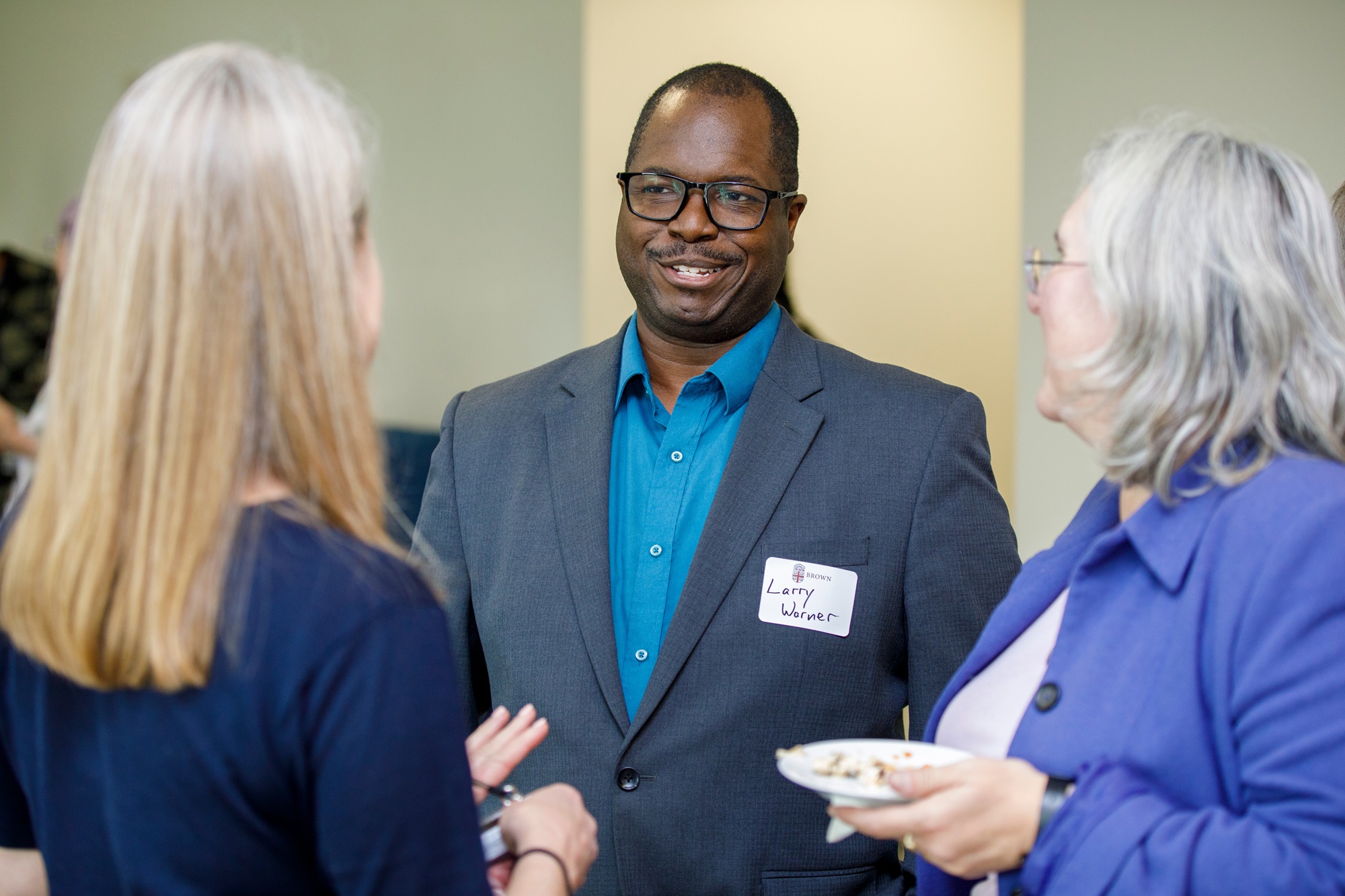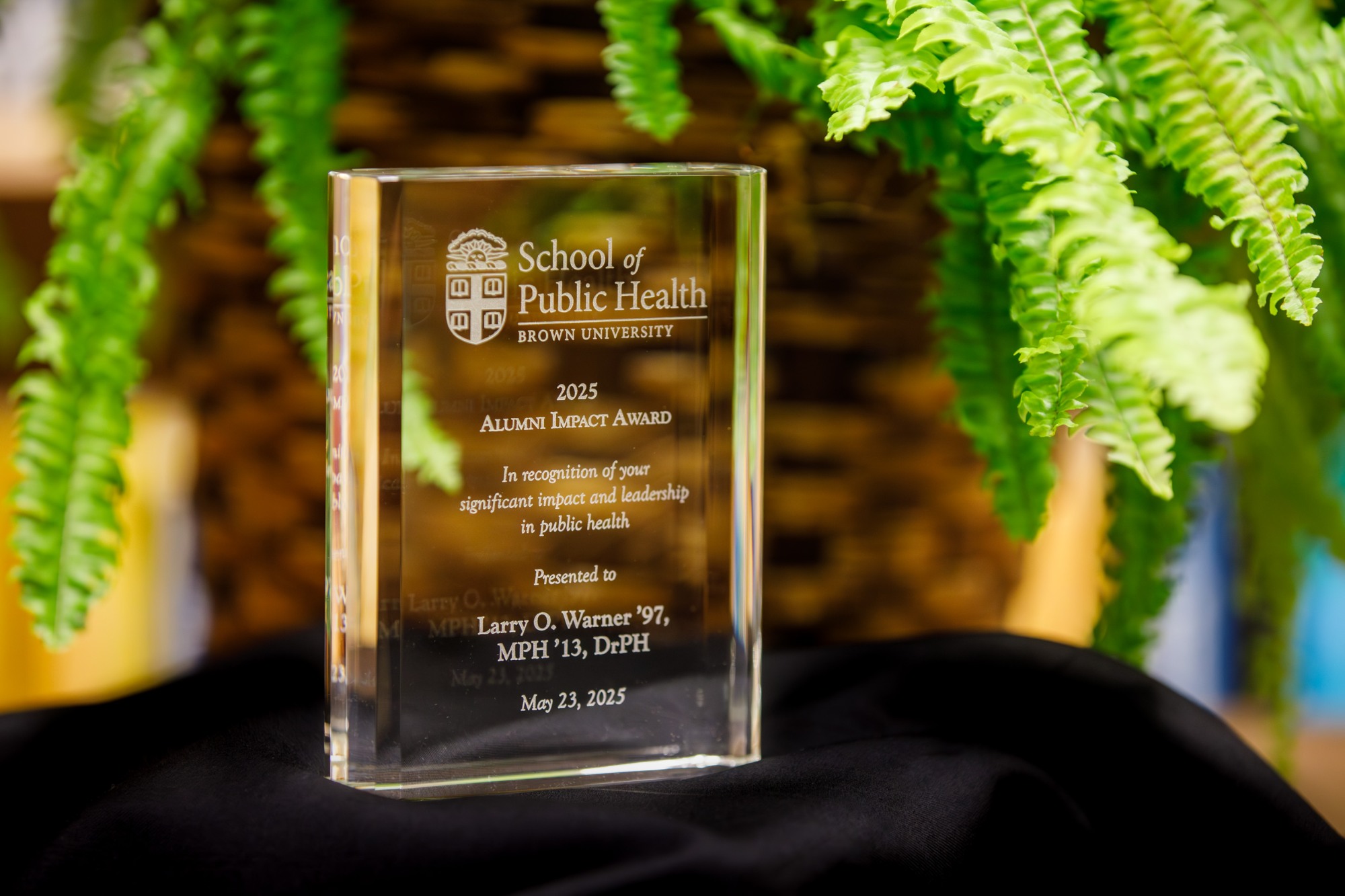Before he came to Rhode Island, Larry Warner ’97, MPH’13, DrPH spent his formative years in Brooklyn, where his mother worked as a home health aide. “I was one of the New Yorkers who could not point to Rhode Island on a map,” he laughs.
It was from his mother’s example that he gained a strong sense of service to those around him. It was his academic excellence that earned him a place at the Packer Collegiate Institute, a prep school in Brooklyn. While at Packer, Warner says he connected with alumni who recommended he look at Brown when choosing where to apply to college. He says the suggestion took him by surprise.
“Rhode Island was not on my radar at all,” he says. But after attending Third World Weekend at Brown, Warner was impressed with the student experience. “I fell in love with Brown and what Providence had to potentially offer,” he recalls.
Warner applied, was accepted and soon began taking classes at Brown with the intention of working toward medical school. He volunteered as an EMT and was on track to becoming a doctor when he stumbled upon a medical anthropology course.
“That completely changed how I understood and viewed society and the things that contribute to healthy or unhealthy communities and households,” he says. “That was what really piqued my interest in public health.”
After completing his undergraduate degree, Warner continued to work with community-oriented organizations, including the Red Cross and later the Providence Fire Department. In these roles he got a first-hand look at how members of the community were impacted by disparities in the social determinants of health—areas like housing and food security and health care accessibility. Warner explains that as a first responder, you see people in their own environment, rather than a clinical setting. That perspective helped inform his outlook on community-based services, and his trajectory in public health.
“Through all of those roles, I still had the same observation: that different communities were experiencing different burdens of disease or illness,” he recalls. Addressing those disparities motivated Warner to pursue a masters in public health (MPH). “I needed to and wanted to equip myself to be able to contribute to healthy and resilient communities,” he says.
Warner used the skills gained through his Brown MPH training to transition his work from the city of Providence to the State of Rhode Island. He joined the Rhode Island Foundation and now acts as chief impact and equity officer of the United Way of Rhode Island. In that role, Warner oversees support and advocacy for community partners and organizations, including help with grant making and coordinating direct services to residents. Warner, who is also adjunct assistant professor of health services, policy and practice in the School of Public Health, embraces his ability to act as a conduit for greater change across the wider public health community.
“The United Way of Rhode Island is involved in a lot of systems and community-level and state-level advocacy,” he says. “We provide resources that equip our nonprofit partners and their leaders and the communities that they're engaged with to advocate for policies, programs and investments that help to advance equitable outcomes in Rhode Island.”
Paying it forward
Warner credits Brown’s interdisciplinary approach with helping him find the areas of public health that he found most rewarding, and hopes he can do the same for the students he mentors in Brown’s Health Equity Scholars program. “Brown created an opportunity both for me to explore, but then also to realize and find my passion in public health,” he says. As a result, Warner says a frequent focus of his mentorship is the variety of paths and disciplines that young professionals can incorporate into their public health career. “I had a very nonlinear professional journey. Now, as I engage with earlier career professionals, it's encouraging for folks to hear that you don't have to go in a straight line. You don't have to go from point A to point B to point C,” he says.
His influence has been felt by Brown students and administrators alike. Director of the Health Equity Scholars program, Rosenny Taveras, says Warner has been an invaluable partner, setting the standard for mentors in the program since its inception in 2021. “His dedication as a mentor has helped shape the program’s criteria for selecting and defining the role of an ideal mentor,” she said. “His willingness to not only invest in our students but also remain actively engaged as a partner is something we greatly value.”
“Dr. Warner has been an incredible mentor from day one, letting me know that his support wouldn’t stop after Brown—it’s a lifelong commitment. That really stuck with me,” says Trinity Perkins, MPH'25, a member of the 2025 Health Equity Scholars cohort and one of Warner’s mentees. “Having a mentor who invests in you for the long haul is rare.”
 Warner also remains active in the wider Rhode Island health community. As president of the nonprofit
Warner also remains active in the wider Rhode Island health community. As president of the nonprofit